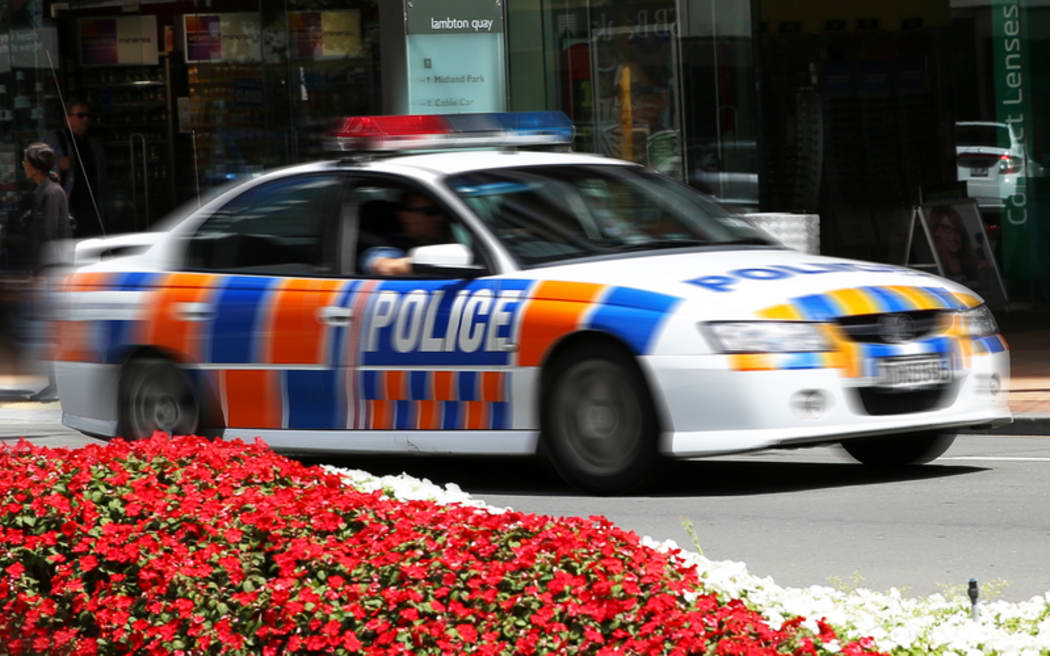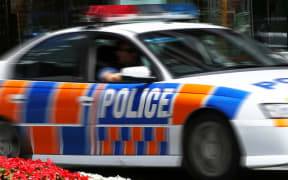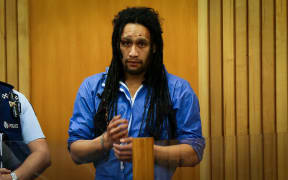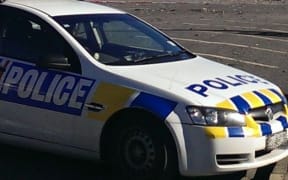Driver training for police recruits is being criticised as limited and the 22 hours they get behind the wheel as inadequate.

Photo: RNZ / Alexander Robertson
Official documents obtained by RNZ show the nine-day driver training course at the Police College in Porirua includes 11 hours of theory and a one hour theory lesson on fleeing drivers.
Last week, RNZ revealed 44 police officers crashed more than once within the last year, with a handful crashing up to four times.
Motorsport champion and road safety advocate Greg Murphy said it was hard to believe police officers fresh out of college were competent enough to be on the road after so few hours behind the wheel.
"Personally, I think the training needs to be better than what it is, and more than what it is, considering the circumstances that the police are put in to, and the amount of miles and amount of kilometres that they are doing under the conditions they are expected to operate in."
He said one would hope police officers would have some decent experience under their belt.
"It's a difficult area to go and suddenly find yourself in, if before you turned up at the Police College you'd just had the standard licensing process and then you go through the 22 hours of practical, the 12 hours of theory and one hour of theory pursuit training.
"I would hope that there's more procedures in place than just that, if you're expected to go chasing the bad guys around the streets."
Mr Murphy was also critical of how often graduates upskill themselves.
He said recruits should be recertified at least every 18 months, rather than the current three years for Gold ranked graduates, and five years for those ranked Silver.
The 2 to 3 percent of recruits who graduate with Bronze get further training within the district they work in.
Public should be able to expect police are well trained
Mark Revill-Johnson, who taught at the college from 2003 until 2012, said the course was limited and did not include enough of the type of conditions officers regularly faced.
"Obviously police travel significantly more kilometres than your average member of the public might.
"They drive in more difficult conditions under more pressure, so the crash rate is generally lower than the public's general crash rate if you took it kilometre for kilometre travelled.
"But the public should be able to expect that police are well trained and police should be setting a 100 percent example of good driving to everybody else."
Mr Revill-Johnson, who is from the UK, said trainees there carry out a four-week course, followed by a further four-week advanced course focused on urgent duty out on the public roads.
"It's the kind of course that needs to be a little more detailed and needs to include the sort of driving conditions that they are going to be driving in.
"Bear in mind, the majority of the course happens within the city, it's ... Wellington, Upper Hutt and Lower Hutt based.
"It has the ability to be able to take an instructed drive through a city environment under emergency conditions, in other words with lights and sirens operating."
Mr Revill-Johnson said people training recruits at the college wanted to do more, but budgets were an issue.
"The cost involved in delivering the training and what's referred to as 'lost opportunity costs', where an officer who's doing training isn't out doing policing ... they make it much more of a constraint than people might imagine it to be."
Nine-day driver training course "too short"
The Police Association agrees the nine-day driver training course is too short, and driving conditions for recruits should be more realistic.
President Greg O'Connor said he understood the constraints. "There are other priorities, and with the police in a sinking budget, there are other areas, like firearms for example, and getting people out on the street, where training could be prioritised more greatly."
Police National Headquarters said there were no plans to extend the length of the course but a review was underway to incorporate more practical training next year.





